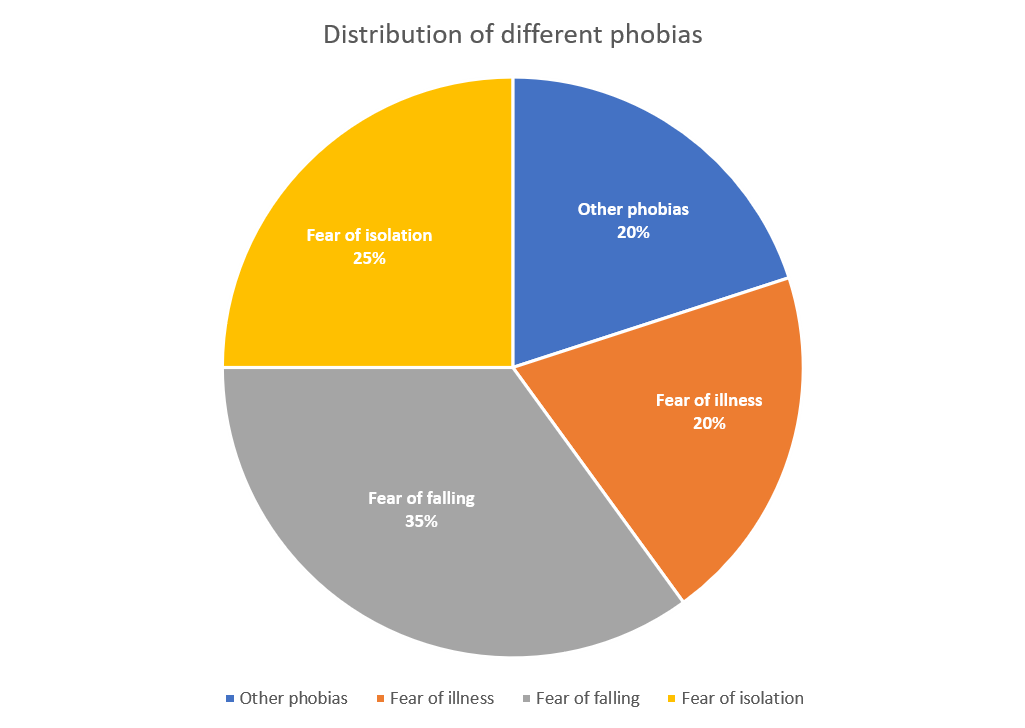 Written by Daniel Martin
Written by Daniel Martin
Stress and anxiety are super common these days. And for us older adults, it can feel even worse. As we get up there in years, a lot of stuff can mess with our emotions – health problems, losing loved ones, big life changes. All that stuff takes a huge toll on our mental health over time. But there are ways to deal with it. One option that’s getting popular for both older and younger folks is hypnotherapy.
So how does it work? Hypnotherapy aims to promote deep relaxation and increase focus. It uses guided imagery, mindfulness, and reframing techniques to help us seniors manage difficult thoughts and emotions smoothly. The therapy is filled with calming exercises that make it easier to handle the stressful stuff. And the best part is it leaves us feeling more peaceful and centered.
Hypnotherapy helps get our minds back on track so we can take on all of life’s challenges with less anxiety. This therapy has been so great for many older adults already. And if you’re feeling stressed, it could be perfect for you too!
The Science Behind Hypnotherapy and Stress Relief
A staggering 93% success rate after just six sessions, showcases the power of hypnotherapy. But what specific challenges do older adults face that might require such an effective intervention?
When hypnotized, the brain enters a state of heightened focus and concentration, allowing the hypnotherapist to tap into the subconscious mind. This enables underlying issues contributing to stress and anxiety to be addressed.
Hypnotherapy techniques such as guided imagery, mindfulness, and cognitive reframing empower individuals to alter negative thought patterns and develop healthier coping mechanisms.
Older adults need to consult their primary care physician before considering hypnotherapy, especially if they have underlying medical conditions. The guidance of a primary care physician ensures that hypnotherapy aligns with their overall healthcare plan and addresses any potential concerns.
The Unique Stressors Faced by Older Adults
According to the National Council on Aging, a whopping 80% of older folks deal with at least one ongoing health problem. That’s got to take a real toll on their mood and mental health, for sure. But how exactly can hypnotherapy help with all those worries and stresses?
Well, let’s break it down. Things like being less mobile, living with constant pain, and dealing with health issues day in and day out – can ramp up anxiety, tank your self-esteem, and even lead to depression. Hypnotherapy steps in to try and ease some of those issues.
Then there are huge life changes that can rock anyone’s world – like retiring, losing loved ones, or having to pick up and move homes. Those transitions can cause some serious stress and anxiety. But hypnotherapy can be a helpful guide to navigate those changes with strength and adaptability.
And let’s not ignore feelings of loneliness and isolation that can sneak in as we get older. Hypnotherapy can give your sense of calm and emotional well-being a boost, helping fight off those lonely feelings and the anxiety that often tags along.
Benefits of Hypnotherapy for Older Adults
Studies show that hypnotherapy can have long-lasting benefits – up to a year after treatment! That’s according to research published in the International Journal of Clinical and Experimental Hypnosis. But does real life match what the studies found? Let’s take a look at some real experiences with hypnotherapy to see if the benefits do stick around.
- Enhanced Relaxation and Stress Relief: Hypnotherapy induces a deep state of relaxation and focused awareness, helping calm racing negative thoughts and enabling more positive mindsets. This heightened relaxation can lower stress and anxiety levels even beyond the hypnosis sessions.
- Pain Management: Hypnosis techniques such as guided imagery or cognitive reframing can reduce the perception of pain in conditions like arthritis. Clinical trials confirm hypnosis can significantly lower chronic pain levels in older adults.
- Overcoming Fears and Phobias: Specific techniques can target phobias and fears – from falling to being alone – that frequently affect older adults as they grapple with declining health or independence. Hypnotherapy helps confront and manage such fears.
- Improved Sleep: Age-related insomnia is a common issue that hypnotherapy can effectively address through relaxation techniques and by reducing anxiety. Restful sleep ensures better cognitive functioning and emotional well-being.
- Boosted Self-Esteem: By increasing confidence and self-esteem through empowering suggestions, hypnotherapy enables individuals to live their golden years to the fullest, pursuing hobbies, interests, and relationships.
Here is a pie chart showing the distribution of different phobias addressed through hypnotherapy that will walk you through the details in a better way.

It is crucial to ensure you’re entrusting your mental well-being to the right professional. So, how do you choose the right hypnotherapist?
Choosing the Right Hypnotherapist
- Specialized Training and Credentials: Certifications from recognized professional organizations are crucial for hypnotherapists, as they validate their rigorous, specialized training and demonstrate their competence in utilizing hypnosis for therapeutic purposes, providing assurance to clients seeking effective and ethical hypnotherapy services.
- Customized Approaches: Seek hypnotherapists using techniques tailored to your specific needs and goals, not just generic hypnosis scripts. Personalized sessions yield better outcomes.
- Experience with Older Adults: Search for practitioners specializing in older adult issues like anxiety, pain management, and life transitions. Their experience leads to a greater understanding of your needs.
- Comfort Levels: Schedule an initial in-depth consultation to gauge your comfort levels with potential hypnotherapists before committing. An open channel of communication is key.
- Ongoing Support: Opt for a hypnotherapist who provides follow-up support even after the initial sessions have concluded to reinforce positive outcomes. Continuity of care is important.
Safety and Efficacy: What the Research Says
Safety is a top priority, especially for older folks, and recent research has some good news about hypnotherapy. The studies done so far show that it’s safe for older adults, and they rarely experience fatigue or headaches when the sessions follow the right guidelines.
Now, let’s talk about how well it works. Clinical trials suggest that hypnotherapy can help reduce anxiety in older people. It also gives them better ways to deal with health problems that come with getting older.
While we’re still learning more through research, what we know so far strongly supports hypnotherapy as a helpful addition to other treatments. It fits well with traditional therapies and medications, giving a more complete approach to tackling the unique challenges that come with aging.
Frequently Asked Questions
- How many sessions are typically required to see results?
For managing anxiety, 6 to 10 sessions are recommended initially, with follow-up sessions if needed. For pain, 8 to 12 sessions may be required.
- Are there any potential side effects or risks associated with hypnotherapy?
When practiced by a trained professional, side effects are very rare. Those with psychosis, epilepsy, or severe mental illness should avoid hypnosis.
- Can hypnotherapy be combined with other forms of therapy or medication?
Yes, hypnotherapy often complements other treatments. However, this should only be done under the guidance of your doctor or mental health provider.
- Can hypnotherapy work for all types of stress in older adults?
Hypnotherapy has shown promise in addressing various stressors commonly experienced by older adults, including health concerns, life transitions, and past traumas.
- Is hypnotherapy safe for older individuals with medical conditions?
When conducted by trained professionals, hypnotherapy is generally safe. However, seniors with medical conditions should consult their healthcare providers before starting hypnotherapy sessions.
In Conclusion
In conclusion, hypnotherapy can be super helpful for seniors dealing with stress, anxiety, and other mental health stuff. The techniques they use in sessions help you relax, be more mindful, and think about things more positively. For older folks facing new worries and feeling overwhelmed as they get older, hypnotherapy gives them a drug-free way to feel calmer and more peaceful inside. More research still needs to be done, but so far it looks like hypnotherapy can improve the quality of life and emotional well-being for a lot of seniors. So if you’re an older person looking for more natural ways to better handle stress and anxiety, hypnotherapy is worth checking out.
Take that first step and find a hypnotherapist who can tailor sessions to your unique needs. A more purposeful and fulfilling next chapter is waiting for you!
Author Bio
Name: Daniel Martin
Bio: Dan has hands-on experience in digital marketing since 2007. He has been building teams and coaching others to foster innovation and solve real-time problems. Dan also enjoys photography and traveling.
Please also review AIHCP’s Clinical Hypnotherapy Certificate program and see if it meets your academic and professional goals. These programs are online and independent study and open to qualified professionals seeking a four year certification.
